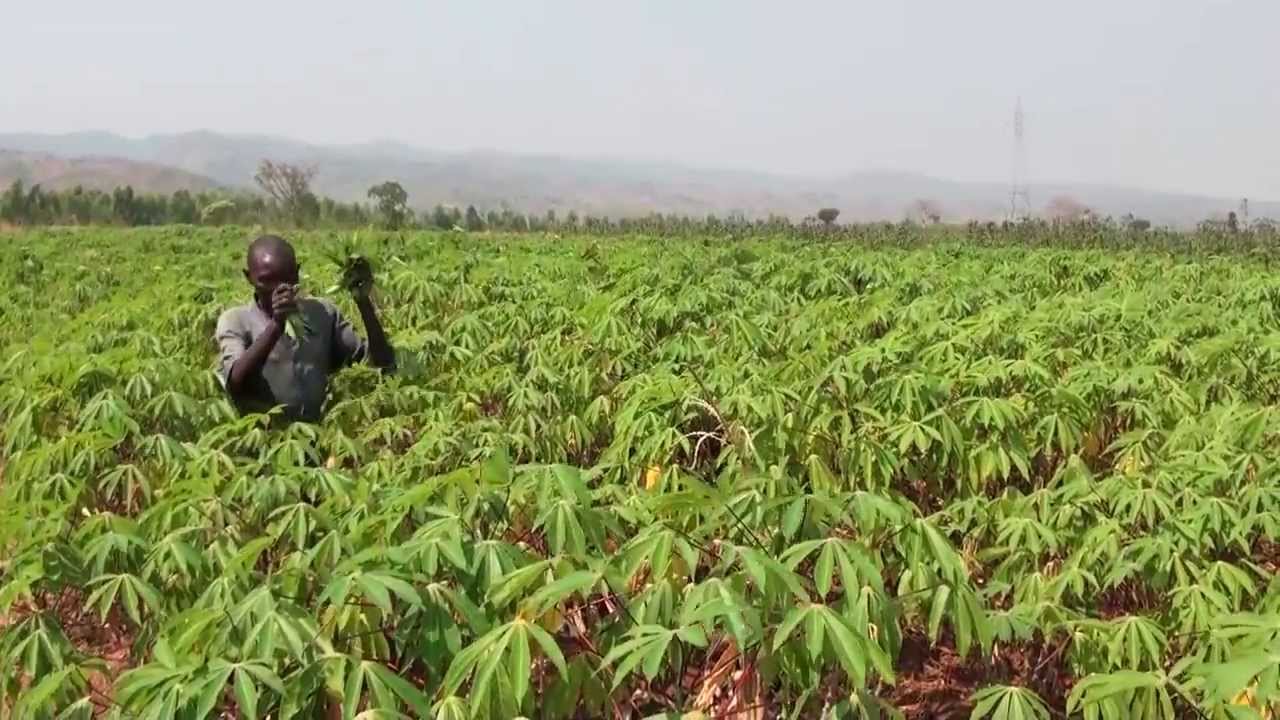FG moves to revive cassava production to save N40bn annual sorbitol import
The federal government has said its initiative on cassava productivity boosting programme will encourage local production of sorbitol and check the over N40 billion being spent annually to import the product. Sorbitol is a sweet-tasting crystalline compound found in some fruit. It is less commonly known as glucitol – a sugar alcohol with a sweet […]

A cassava farm
The federal government has said its initiative on cassava productivity boosting programme will encourage local production of sorbitol and check the over N40 billion being spent annually to import the product.
Sorbitol is a sweet-tasting crystalline compound found in some fruit. It is less commonly known as glucitol – a sugar alcohol with a sweet taste which the human body metabolizes slowly. It is said to be useful for diabetes patients.
It is a sugar alcohol (polyol) with six-carbon atoms and six hydroxyl groups. Sorbitol occurs naturally in fruits such as apples, pears, peaches, apricots and nectarines. Other natural sources include dried fruits like prunes, dates and raisins, and in some vegetables.
But mostly, it is being produced from cassava, one of the tuber crops that can be massively produced in Nigeria.
- 10th NASS: N/Central govs back Sani Musa for dep Senate President
- Why NAHCON must review 2023 Hajj airlift plan – CSO
But according to the Director General of the Raw Material Research Development Council (RMRDC), Professor Hussaini Doko Ibrahim, despite the fact that Nigeria is a major producer of cassava, the country expends about N40 billion annually to import sorbitol.
Professor Ibrahim regretted that Nigeria imported sorbitol item No. 2905.44 of over $6,743.17K in 2019 when about 12,088,200 kg was imported from Indonesia ($2,113.67K, 3,978,190 Kg), India ($1,916.43K, 3,014,570 Kg), Turkey ($1,260.35K, 2,376,310 Kg), China ($1,233.79K, 2,421,100 Kg) and the United States ($145.23K, 259,394Kg).
The DG noted that in 2018, Nigeria was the largest producer of cassava globally, adding that cassava was produced in 24 of the country’s 36 states.
During the period, he added that Nigeria produced about 59.5 million tons of cassava. This represented 21 percent of the world’s total but noted that about 90 percent of cassava produced in Nigeria is consumed locally without any value addition.
Daily Trust on Sunday reports that in Nigeria, cassava is grown throughout the year, making it preferable to seasonal crops like yam, beans or peas. It also displays an exceptional ability to adapt to climate change, with tolerance to low soil fertility, resistance to drought conditions, pests, and diseases, and suitability to store its roots for long periods underground even after they mature. The use of fertilizers is limited, and it is also grown on fallow lands.
According to the DG, starch-rich materials such as corn, wheat, potato and cassava are used as raw material for the production of sorbitol.
He said the Council was ready to expand the cassava value chain development to include production of industrial raw materials that are in very high demand locally and that also have competitive export potential like sorbitol.
He said the Council in collaboration with stakeholders in research institutes and in the industry has put in place plans to promote investment in sorbitol production from cassava.
In view of this, Professor Ibrahim said the Council has designed and developed a process for the local production of sorbitol, adding that a pilot plant with production capacity of 75kg/batch has been installed at the RMRDC Technology and Innovation Complex.
‘’The plant can produce both liquid/syrup and crystal/powder sorbitol products which are locally required and also have high potential for export. The equipment has been tested and the products compare favorably to international quality standards,” he said.
According to him, the Council is presently engaging stakeholders on the establishment of the plant in major cassava producing ecologies in the country.
The beauty of the investment, he said, is that it can be operated at small, medium and large scales and as a result, it is within the capacity and capability of local government areas, state governments and private sector investors in the country to key into the investment plan.
‘’This will enable the proliferation of the production plants in the country. When this is achieved, this initiative will save the nation more than N40 billion annually in foreign exchange equivalent, apart from export potential to generate foreign exchange. It will also promote job creation and consequently, poverty reduction in the country. This is expected to grow geometrically within the next few years according to the strategic plans put in place by the Council and other stakeholders,” Professor Ibrahim assured.
